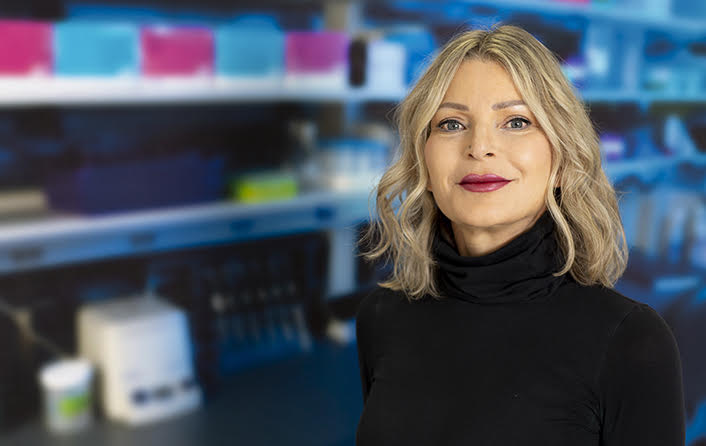
New TGen research finds link in severity for Nonalcoholic Fatty Liver Disease
PHOENIX, Ariz. — August 22, 2022 — Nonalcoholic fatty liver disease (NAFLD) is both increasingly common and potentially deadly; yet its causes remain poorly understood. Now, a collaborative team of researchers at the Translational Genomics Research Institute (TGen), part of City of Hope, and Temple University has uncovered a link between decreases in an enzyme that makes choline in the liver —an essential nutrient for humans— and severity of NAFLD.
NAFLD is an umbrella term for a wide range of conditions caused by accumulation of excessive fat in the liver. In many patients, NAFLD can progress to a condition called nonalcoholic steatohepatitis (NASH), characterized by liver inflammation and fibrosis, which in turn increases their risk of developing more lethal complications such as cirrhosis and cancer. NAFLD is one of the most common indications for liver transplantations in the United States.
The study results, published this week in the International Journal of Molecular Sciences, suggest that regulation of choline, which is an essential nutrient we usually obtain through our diets, is absolutely critical for the normal, healthy functioning of our livers. The sole source of choline made in the liver is through the activity of an enzyme called PEMT. Without sufficient choline, fat is unable to be transported out of the liver.
“This collaboration has provided insights that implicate choline deficiency, as a result of decreased PEMT in the liver, as a potential cause of both NAFLD and worsened fibrosis in patients who have progressed to NASH. Low PEMT expression in the liver may predispose some individuals to rapid hepatic fat accumulation because they are not able to get fat out of the liver efficiently,” said Johanna DiStefano, Ph.D., a professor in TGen’s Metabolic and Fibrotic Disease Program and the study’s senior author. “Complicating that further, the modern diet of heavily processed food may not provide as much choline as our bodies need,” DiStefano added.
More news from the PBC
- New study seeks to combat national kidney shortage, improve availability for organ transplants
- SEMI, MDM2 to host smart medtech conference in Phoenix from April 22-24
- Innovative Therapy Shows Promise in Reversing Lung Scarring in Idiopathic Pulmonary Fibrosis
- Phoenix City Council Expands Enhanced Municipal Services District to Strengthen Innovation and Growth
- C-Path’s Predictive Safety Testing Consortium Advances a Transformative Test to Detect Drug Induced Liver Injury
- Fuel Your Startup’s Growth: Explore Arizona’s Expanded SBIR/STTR Support
- U of A Center for Innovation Startup ClientsGenerate $664.8M In Economic Output
